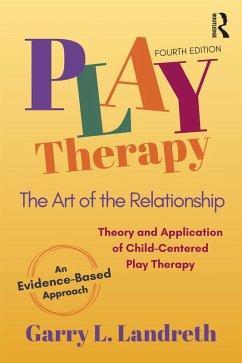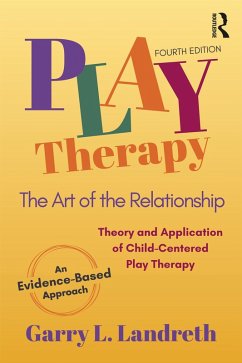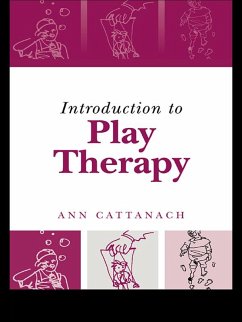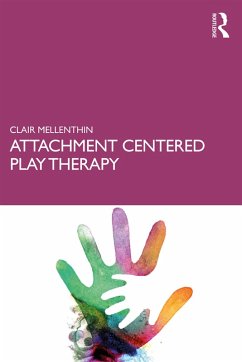
Child-Centered Play Therapy (eBook, PDF)
A Practical Guide to Therapeutic Relationships with Children
Versandkostenfrei!
Sofort per Download lieferbar
49,95 €
inkl. MwSt.
Weitere Ausgaben:

PAYBACK Punkte
25 °P sammeln!
Designed for professionals adding play therapy to their practices as well as for graduate students, the second edition of Child-Centered Play Therapy is comprehensive, engaging, and practical.The authors provide a strong theoretical base from which to understand the whys and hows of child-centered play therapy and guide readers through all necessary skills for successful practice. From playroom setup, tracking and empathy, limit-setting, and role-play to treatment planning, recognizing stages, measuring progress, and working with parents and teachers, each chapter anticipates readers' question...
Designed for professionals adding play therapy to their practices as well as for graduate students, the second edition of Child-Centered Play Therapy is comprehensive, engaging, and practical.
The authors provide a strong theoretical base from which to understand the whys and hows of child-centered play therapy and guide readers through all necessary skills for successful practice. From playroom setup, tracking and empathy, limit-setting, and role-play to treatment planning, recognizing stages, measuring progress, and working with parents and teachers, each chapter anticipates readers' questions and covers key concepts in diverse ways to meet different learning styles.
On the book's website, readers will find a test bank, sample slides and syllabi, treatment planning forms, as well as additional activities and worksheets for students and trainees.
Key Features:
Endorsed by Louise Guerney, a founding child-centered play therapy figure who developed the skills-based methods covered in this book, Child-Centered Play Therapy comprehensively and realistically introduces practitioners to the child-centered approach to play therapy and addresses how to incorporate the approach into schools, agencies, or private practice.
The authors provide a strong theoretical base from which to understand the whys and hows of child-centered play therapy and guide readers through all necessary skills for successful practice. From playroom setup, tracking and empathy, limit-setting, and role-play to treatment planning, recognizing stages, measuring progress, and working with parents and teachers, each chapter anticipates readers' questions and covers key concepts in diverse ways to meet different learning styles.
On the book's website, readers will find a test bank, sample slides and syllabi, treatment planning forms, as well as additional activities and worksheets for students and trainees.
Key Features:
- Everything needed for best practices in child-centered play therapy in one book.
- Plain-spoken, practical writing.
- Vivid case stories and vignettes.
- New neuroscience findings linked to long-held wisdoms of child-centered play therapists.
- Outcome research reviewed across problem areas of externalizing and internalizing behaviors, school problems, applications with children with disabilities, adverse childhood experiences, and trauma.
Endorsed by Louise Guerney, a founding child-centered play therapy figure who developed the skills-based methods covered in this book, Child-Centered Play Therapy comprehensively and realistically introduces practitioners to the child-centered approach to play therapy and addresses how to incorporate the approach into schools, agencies, or private practice.
Dieser Download kann aus rechtlichen Gründen nur mit Rechnungsadresse in A, B, BG, CY, CZ, D, DK, EW, E, FIN, F, GR, HR, H, IRL, I, LT, L, LR, M, NL, PL, P, R, S, SLO, SK ausgeliefert werden.













